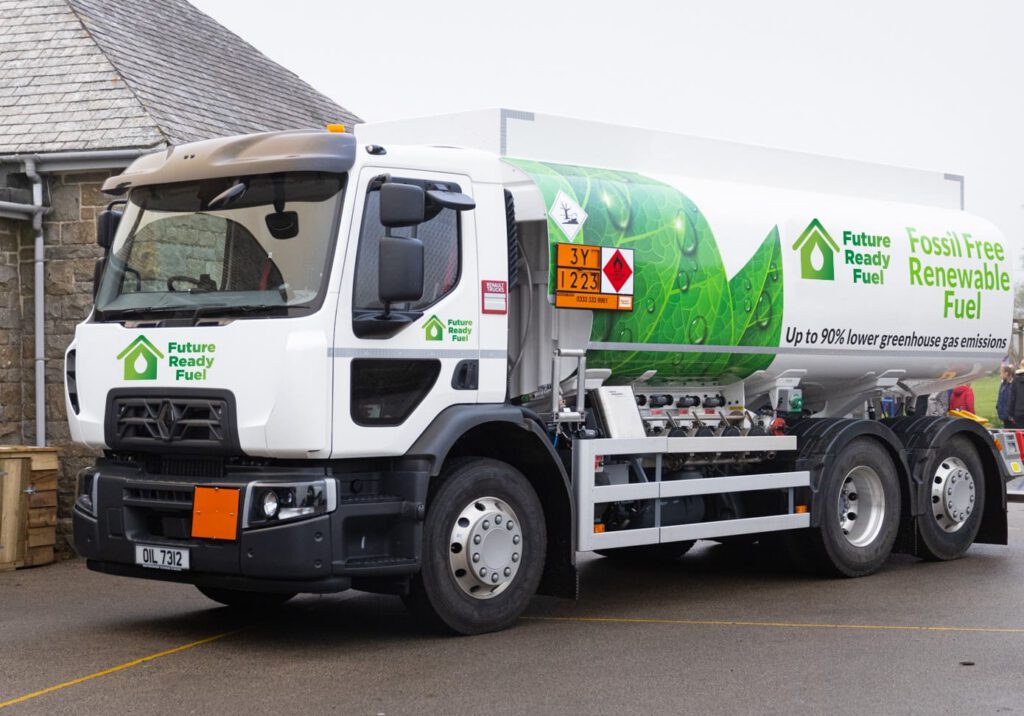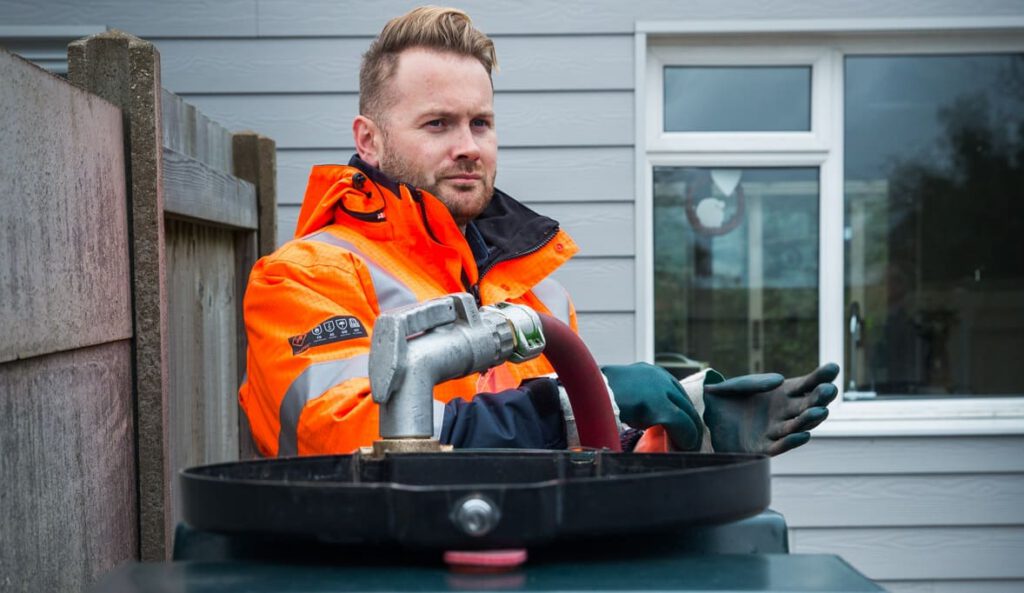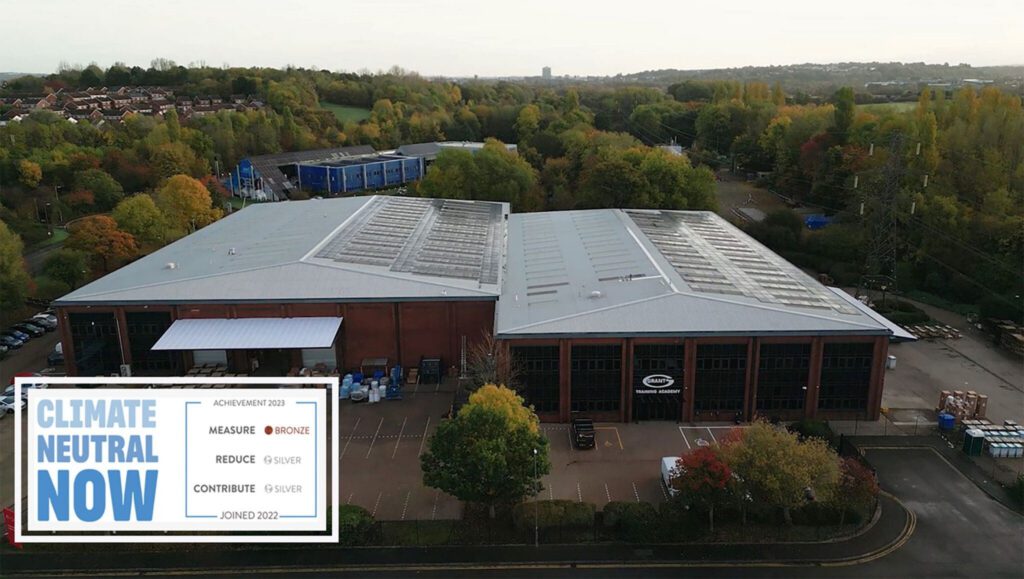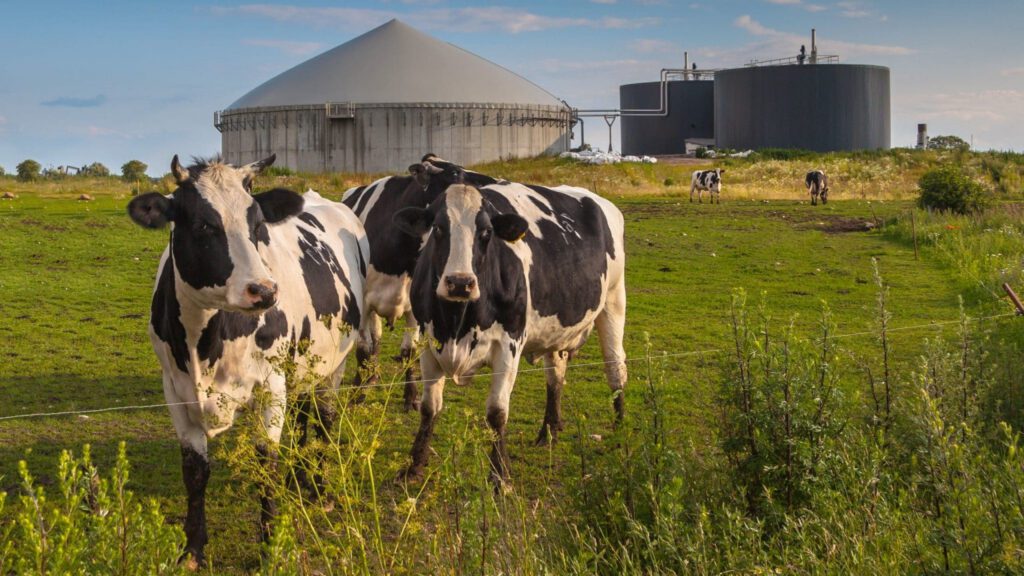Heat for today, hope for tomorrow: Firebird’s role in Ireland’s low-carbon journey

The Renewable Heat Obligation bill sets a course for a cleaner, more sustainable Ireland. But reaching that destination will require more than ambitious targets – Firebird is delivering solutions that work now.
Ireland greenlights a Renewable Heating Obligation

The Government in Ireland had proposed to introduce a renewable heating obligation (RHO) in 2026 for the heating sector.
MPs urged to back affordable green heating campaign for oil heated homes

Off-grid constituents are at risk of being overlooked in the drive for electrification.
Industry urges Government on rural decarbonisation strategy as customer cost concerns grow

Ahead of publication of the government’s long-awaited Warm Homes Plan, the liquid fuel heating industry has called for the adoption of five key recommendations that will ensure a successful transition for the complex rural off-gas grid sector. As a new survey of off-gas grid consumers reveals increasing concerns over the cost of transitioning to low carbon heating, the government is being urged to set out a clear road map for decarbonising rural households, The survey of 1,364 households that use oil heating, conducted by trade associations OFTEC and UKIFDA, revealed 60% of respondents are more worried about the costs of switching to low carbon heating systems than they were three years ago. The results have been shared ahead of the government’s expected publication of its Warm Homes Plan which will outline Labour’s policy programme to deliver the UK’s net zero targets. There are an estimated 1.7 million oil households in the UK who could be affected. The survey also revealed: Trade associations OFTEC and UKIFDA have written to Miatta Fahnbulleh, the minister responsible for the Warm Homes Plan, outlining five key recommendations to successfully deliver off-grid decarbonisation for rural homes as part of its strategy. Industry’s 5 recommendations Successful decarbonisation strategy Paul Rose, CEO of OFTEC, and Ken Cronin, CEO of UKIFDA, said: “Decarbonising the UK’s 1.7 million oil heated homes is a complex challenge as they face unique barriers due to their age, construction and rural location. Government policy must therefore focus on desired outcomes rather than mandating a single technology, such as electrification, which in many cases isn’t practical or affordable. Not to mention the significant shortage of installers. “A genuine technology neutral strategy would give households real choice and unlock a wider mix of cost effective and practical low carbon options. This includes renewable liquid fuels which have already been successfully demonstrated in around 150 off-grid buildings. “Whilst we all share the ambition to drive down our carbon emissions, in this even more challenging economic environment post April, both the government and households need to pull every lever and focus on affordable and practical low carbon solutions. Many rural businesses also rely on oil heating and would benefit from a wider choice of options. “We will continue to work positively with the government and wider industry to deliver successful decarbonisation across the off-grid sector.” Image provided by OFTEC.
The new government must align with industry and consumers for net zero to be successful

A call from OFTEC for equal policy support for renewable liquid fuels.
Grant UK sustainability campaign proves a big hit with schools

Local schools enjoy Grant UK’s Kick The Carbon campaign.
OFTEC Conference highlights an industry primed for renewable liquid fuel rollout

The renewable liquid fuel industry is primed to deliver once new government gives the green light.
Survey shows rural voting intentions will be influenced by heat decarbonisation policy

Political party policies on transitioning off-gas grid homes onto low carbon heating will impact how rural households vote at the general election, results from a new survey reveal. In a poll of just under 1,000 rural homeowners published by the Future Ready Fuel campaign, 85% of respondents said the government and opposition party policies on decarbonisation will influence how they cast their vote at the ballot box. Homeowners call for choice Significantly, the survey also revealed that 94% of households felt they should be responsible for choosing the heating system they install when it needs to be replaced, compared to 2% who thought the government should have the final say. When asked about renewable liquid fuels, 88% of respondents said they would prefer to switch to the fuel compared to just 6% for a heat pump. This emphasises the importance of greater choice in the marketplace for low carbon heating, including renewable liquid fuels. In October, following significant support from a cross party group of MPs, Parliament approved the Energy Act which included provision to legislate for a Renewable Liquid Heating Fuel Obligation which would allow rural homes to use renewable liquid fuels in their existing boilers without costly and disruptive additional work, but still reducing their overall carbon footprint. This was subject to a further consultation which will now be delayed as a result of the general election. Paul Rose, CEO of OFTEC, and Ken Cronin, CEO of UKIFDA, who are backing the Future Ready Fuel campaign commented: “At the start of the general election, this survey reveals that the policies political parties set out for transitioning rural homes onto low carbon heating will be an important factor in how households vote. “We are urging all parties to publicly commit to delivering on the commitments Parliament made to the UK’s 4 million people in 1.7 million off-grid households in passing the Energy Act. “In this election, rural off-grid households now must have the certainty they need to be able to choose how best they can make their contribution to achieving net zero. We stand ready to work with the next government to make that a reality.” Support for renewable fuel switch Paul and Ken added: “There is overwhelming public support for renewable liquid fuels and the government and opposition parties have the opportunity to show they are on the side of rural homeowners. Otherwise, they will make their voice heard at the election.” Among the other findings in the survey, over 40% over respondents said their property was over 100 years old. Whilst over 90% had loft insulation and double glazing, only 43% had cavity wall insulation, 19% external wall insulation and 14% underfloor heating. According to the government’s online calculator, the cost for some properties to install a heat pump could exceed £20,000 and involve significant disruption from the installation of new radiators, piping and the reintroduction of a hot water tank. When asked how much they would be willing to spend on a new heating system, 56% of those surveyed said between £1,000 to £5,000. Only 2% said up to £15,000. Two thirds (64%) were also more concerned about the cost of installing a low carbon heating system than three years ago. Around 150 oil heated properties across the UK have switched to the renewable liquid fuel Hydrotreated Vegetable Oil (HVO) as part of an industry backed demonstration project. The sustainably sourced fuel reduces emissions by 88% and only requires a small modification to an existing boiler which is expected to cost around £500. Survey respondents strongly supported this option and 97% said the incentives on HVO in transport and aviation should also apply to home heating. Image supplied by Genesis PR shows Paul Rose, CEO of OFTEC, and Ken Cronin, CEO of UKIFDA
Grant UK maintains its carbon neutrality status

Grant UK delivers carbon neutrality for the third year running.
Government changes to Boiler Upgrade Scheme risks misleading consumers

OFTEC shares its concern for consumers over costs.
Industry board for next generation of installers and engineers

Industry board for next generation of installers and engineers.
Next generation of home heating to be unveiled

Kensa Heat Pumps is set to unveil the next generation of home heating and cooling.
What next for net zero?

Malcolm Farrow discusses the latest government developments.
Another step forward for renewable liquid fuel as Government’s amendment is passed

The amendment to incentivise the use of renewable liquid fuel for heating has been passed by parliament.
Long-awaited biomass strategy leaves many questions unanswered

In August, the UK Government finally published its long awaited and much delayed biomass strategy.
